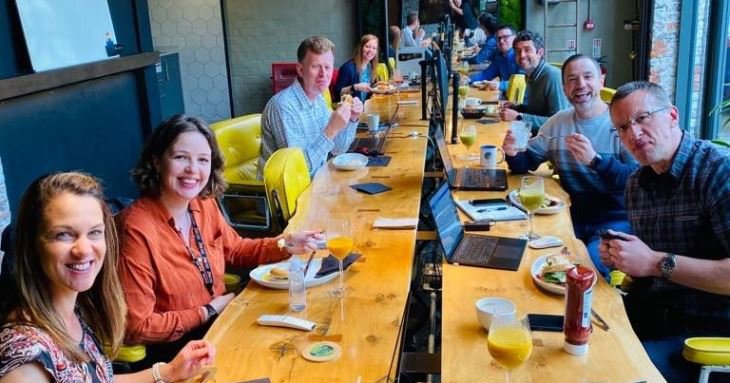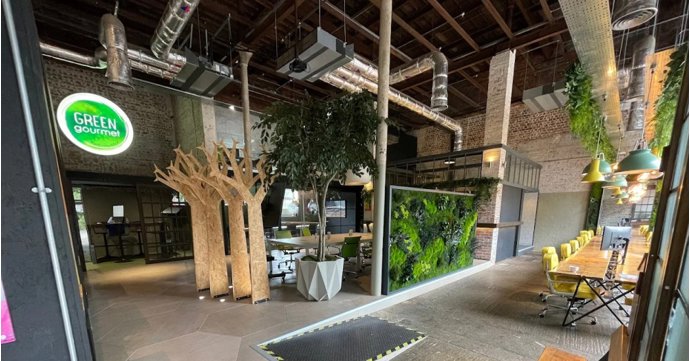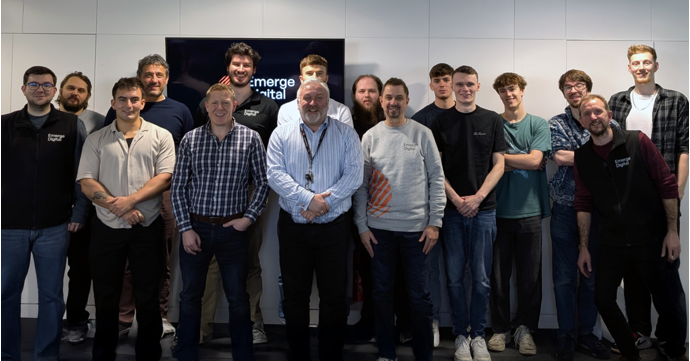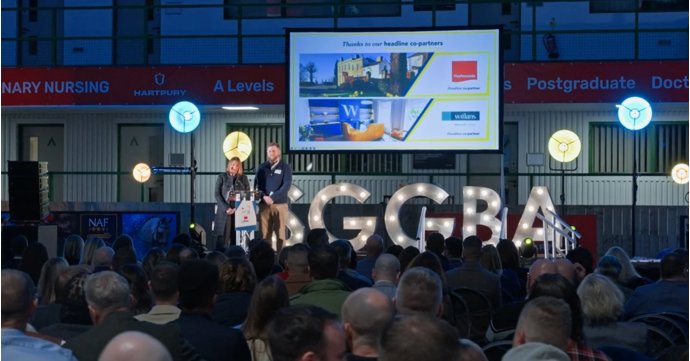‘People, planet, profit’ is a mantra of priorities for the innovative Five Valleys food firm Green Gourmet, which this year was named in the UK's Best Workplaces for Wellbeing, for Women 2022 and just generally.
Mike Hanley, its managing director, lifts the lid on a business culture mindful of the environment and its community, that makes for a great and diverse place to work, but is also producing an enviable bottom line against seriously testing headwinds.
When you look at the culture of a business, what do you look at?
A business needs direction first; you have to be certain of where you are going. But you need to ask ‘how high are your standards; what is your culture like?’. If you are a truly great place to work, you will have high standards and work to a high level of performance that will show in your profit and loss.
Nothing tests high ideals like economic pressure, and the UK has that in abundance. How is Green Gourmet coping?
It is not easy, but we have had our biggest year yet in our last financial year. We have declared a positive profit and positive balance sheet every year despite market challenges. That reflects the resilient environment around the team, which they have developed themselves.
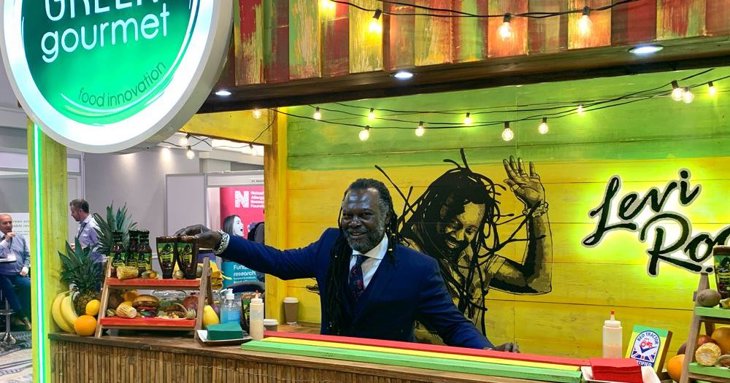
Does that mean the sectors you are operating in have been relatively protected, through the Covid-19 pandemic and against inflationary pressures?
We have a £20 million turnover, so are a relatively small business, but we have chosen to exist in markets that are very highly regulated and complex (it provides food solutions, to the education, leisure, travel and retail sectors). If you want to supply airlines, which we do, it is very complex and the sector was hit hard by the Covid-19 pandemic. We have had to explore moving into new markets as well.
The return of the travel sector post pandemic was not smooth, and we introduced a new ERP (enterprise resource planning software) system at the same time, but the team has worked incredibly hard to find solutions and get around some of the other issues for us and customers.
At the moment it remains a really tough environment, but we are performing.
What are the ‘new markets’ you have diversified into?
Retail. It is nowhere near as regulated as the airline sector, but it is in some ways more complex. We decided to go into it because of the sheer scale and we thought it would be a really positive step. It is working. It adds variety to what we do and removes reliance on one sector.
Is there a point of focus which you can attribute to that continued ‘performance’?
When we talk about creating solutions it is about creating them for customers and being very customer-focused. A lot of what we do does not bring any additional revenue and profit, but it is about customer loyalty; our loyalty to that relationship which we value.
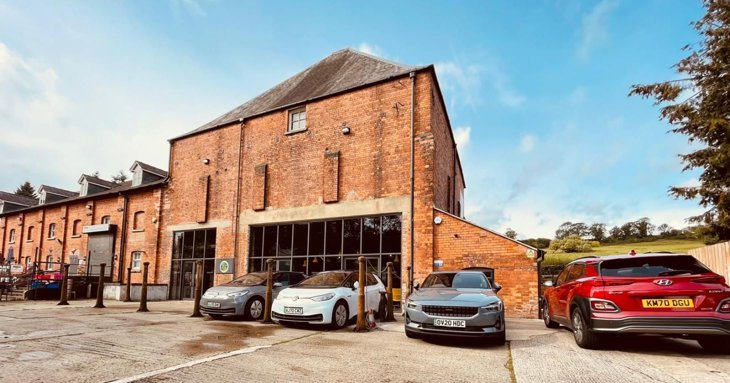
Green Gourmet has had flexible working a long time now, but post Covid-19 it has become a point of focus for many firms. What's your view?
I have been asked the question a lot; ‘what do you think about flexible working – is it working?’. I think a lot of business leaders have been worried about a loss of productivity, but if you have a high standards, high-performance environment you can work anywhere.
We have our core hours, but we don’t measure those hours. It is an old concept. If you have a really clear strategy to work to and you know where you need to get to, the question is ‘how are you going to get there?’. It then comes down to getting the talent pool right so that can happen.
You have to have the right calibre of person. You have to hire better and you can’t just drop someone into the business and expect them to gel and pass the ball straight away. It takes time.
It is really important that everyone understands the expectations for performance and the level at which we will not go below. This comes from the top down.
If all those things align you have to have a golden thread right through the business and when it comes to measuring performance, I think you have cracked it.
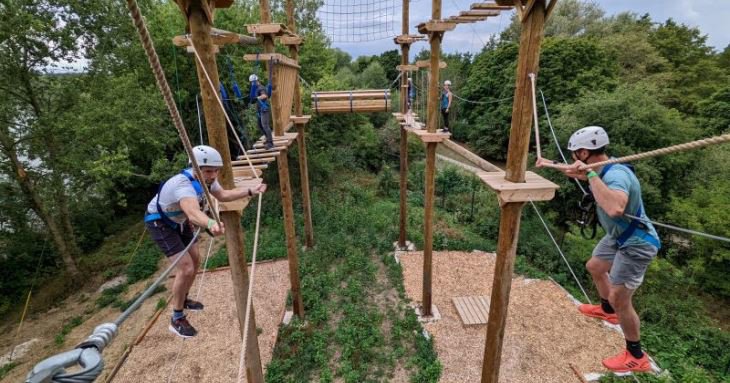
Looking just at Green Gourmet, what other observations would you make about the culture?
I think we have to be quite vulnerable to succeed, but resilient.
Building a high-performance team is always going to be quite a challenge; they have to pass the ball; they have to be really clear with their roles; responsibilities and behaviours. And we have a tool kit for keeping standards high.
When times are tough stress can set in, and when that happens complacency and inertia set in, you have to have pull it up straight away.
Some of the things we do as part of that are quite counter-intuitive. For example, when things get tough we may go off site. When we come back we’re ready and we know what we are doing. It is about re-energising.
When we first did it Adam (Starkey, the founder and chief executive officer) did ask what we were doing, but he listened and he said ‘okay, show me’. That trust has to be there throughout the business, but you do have to deliver and if it doesn’t work, change it.
You need to get to the point where you encourage feedback. You need to get to a point where staff are comfortable to talk up to the managing director and say ‘I think we should be doing this instead’.
More than 50 per cent of staff at Green Gourmet are women. The business was ranked as one of the UK's Best Workplaces to Work for Women 2022. Why is this important?
Diversity is part of our agenda. I think diversity comes from inclusivity. If you get that right, you are winning. When you look at a CV you should be asking yourself one question first before you look at their name, sex or where they are from, and that is 'is this the best person for the job?'.
You are clear that leadership is also key. What do you think makes a good leader?
There are three tests of a leader – to deliver the commercial plan; to relentlessly focus on achieving that. Then there is human potential; if you can allow and encourage people to be the best version of themselves you will get the best out of them – and that means encouraging people out of their comfort zone. And thirdly, you need a plan to be prepared for the future and you need to deliver that plan.
It is my job to make sure we stick to our knitting and deliver the plan. That plan will evolve with the business, but it has to work from the top.
You have to have agility, to avoid inertia and complacency, to be responsible, bold and to challenge. You have to be ready for positive change. You have to put people first. If you get all this right you will be able to see that in the profit and loss.


